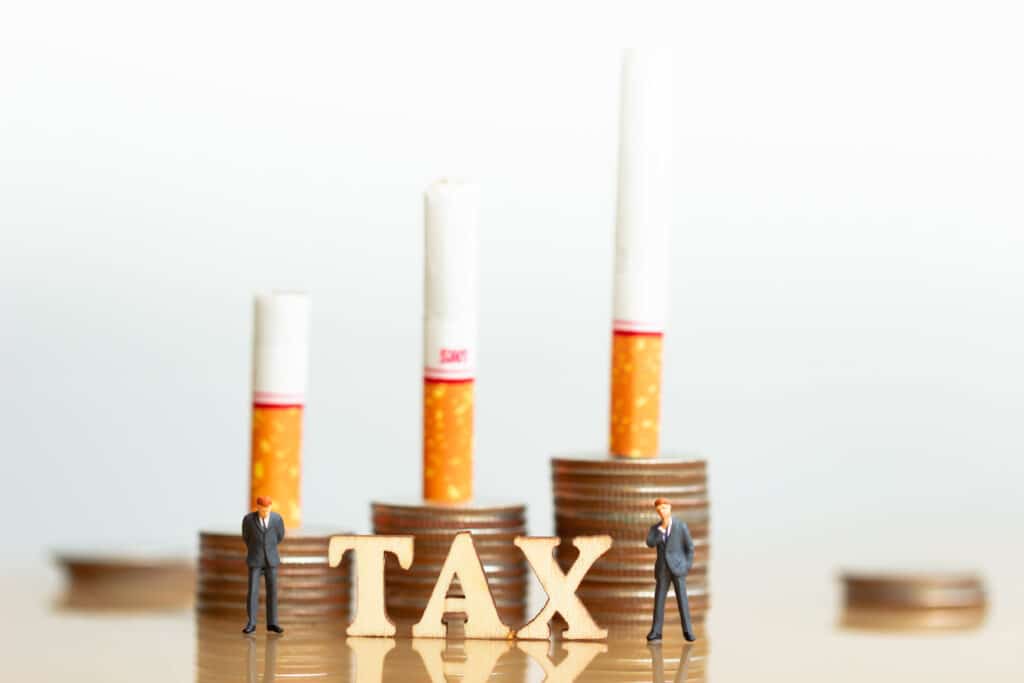The US government’s actions suggest that it is not truly committed to helping people quit smoking. Instead of encouraging smoking alternatives and aligning its policies accordingly, it continues to target companies like Juul and Elf Bar. With no reported deaths linked to vaping, it seems that the government wants to discourage vaping and promote smoking instead.
*Please note that this article reflects the writer’s opinion on recent events involving the US government’s warnings to retailers regarding the sale of Elf Bar products.
What is Elf Bar?
Elf Bar is a Chinese company, owned by iMiracle Shenzhen, that specializes in selling nicotine vape products. The company offers a range of disposable and refillable pods, available in both regular pod-shape style and cigarette style. While Elf Bar emphasizes sustainable and prosperous society, the predominance of disposable products raises concerns about environmental sustainability.
The company acknowledges and adheres to regulations related to the advertising and sale of nicotine products. It also implements programs to prevent the access of individuals under the age of 18 to nicotine. However, it becomes challenging to take their “no-nicotine” campaign seriously when their business revolves around selling nicotine products.

It’s important to note that nicotine itself is not the primary issue with smoking. The main concern lies with the act of inhaling smoke, whether from tobacco, cannabis, or other substances. Smoking inherently involves the inhalation of harmful substances. Therefore, any product that helps individuals avoid smoking should be considered a positive choice, as long as it does not pose additional health risks due to harmful additives.
Elf Bar and the US Government
The US Food and Drug Administration (FDA) recently issued warning letters to approximately 189 retailers, urging them to cease selling Elf Bar products. These letters are sent because the products are considered unauthorized, meaning they are sold outside the boundaries of government regulation. This situation implies that the government cannot fully tax these products, resulting in decreased revenue compared to approved products.
The Family Smoking Prevention and Tobacco Control Act (TCA) was introduced in the US to regulate and curtail illicit markets. The FDA targeted Elf Bar because the company lacks current authorization or a pending application with the agency. According to available data, Elf Bar is one of the most popular vape brands in the US, which likely prompted the FDA’s action.
While addressing this issue, FDA Tobacco Center Director Brian King stated, “We’re not going to stand by as bad actors are profiting off the sale of illegal products that are addicting our nation’s youth. Today’s action is just part of our long-standing efforts to address those products, particularly flavored disposable products.”
Despite such efforts and the crackdown on Juul, the illicit vape industry continues to thrive. The number of e-cigarette brands in the US increased from 184 to 269 between 2020 to 2022. Additionally, the disposable vape market share rose from 24.7% in 2020 to 52% in 2022.
The article also mentions a report, without citation, that indicates an increase in poison control center calls involving children, potentially related to these products. However, the relationship between a child’s ingestion of a vape cartridge and smoking risks remains unclear. It is worth noting that children are more likely to accidentally ingest other hazardous substances, such as pills or cleaning products.
While statistics regarding emergency room calls allegedly involving vaping-related issues are mentioned, no supporting evidence is provided. The article claims that government scientists reported a 30% increase in such calls within a year. However, it does not identify the source of the information, the substances involved, or whether nicotine was the sole factor. The lack of detailed statistics raises questions about the validity of these claims.

Similarities to the Juul Case
About a year ago, the US government imposed a ban on some Juul products while allowing cigarettes to remain on store shelves. This contradiction raises significant concerns. If Juul or any other vaping device is deemed dangerous enough to necessitate a ban, cigarettes, which have a well-established death toll, should logically be banned as well. Cigarette smoking contributes to approximately 480,000 deaths annually in the US, with 41,000 of those attributed to secondhand smoke, as reported by the CDC.
Juul, as one of the major players in the vaping industry, has faced intense scrutiny. Remarkably, Juul has not been associated with any deaths or injury lawsuits. Nonetheless, it has become the target of a purported “vaping epidemic,” which is essentially an “epidemic of smoking cessation.” While cigarettes continue to be readily available, Juul is treated as if it is pushing dangerous substances on vulnerable individuals, although it primarily offers a safer alternative to smoking.
Despite lacking any cases of death or injury, Juul recently settled multiple lawsuits by agreeing to pay around $1 billion to 45 states. Apart from settling these cases, Juul must comply with various regulations concerning marketing practices and the age of individuals appearing in advertisements. It is worth emphasizing that no deaths have been linked to Juul products.
The US government’s focus has now shifted to Elf Bar, following its attempts to limit Juul both financially and legally. However, this approach appears to be driven by a desire to control unregulated markets rather than a specific vendetta against Juul or Elf Bar. The government is unlikely to approve any products that are not subject to its tax laws. Elf Bar is simply the next target in line.
Reasons Behind the US Government’s Anti-Vaping Stance
The US government frequently highlights the dangers associated with smoking. This emphasis allows the government to capitalize on lawsuits against cigarette manufacturers while imposing high taxes on such products. This pattern is observed worldwide, with vaping often facing criticism and regulation despite the absence of direct, significant harm. Although no deaths have been attributed to vaping, concerns about its safety persist. By limiting vaping options, the government inadvertently encourages individuals to resort to smoking, potentially preserving its revenue from cigarette taxes.
The government employs “sin taxes” to combat societal harm caused by unhealthy products, such as alcohol and, to some extent, cannabis. These taxes, also known as excise taxes, are embedded in the overall cost of the product and contribute to government revenue. Cigarette taxes vary by country, with Mexico imposing a 70% tax and some European Union countries charging up to 82.16%. In the US alone, cigarette taxes generated $12.9 billion in 2019, according to Taxpolicycenter.org.

Given the US government’s consistent efforts to impede smoking cessation, it is surprising that it does not adopt a more supportive approach similar to that of the UK. The UK actively seeks to switch smokers to vaping, even allowing pregnant women to use vaping products. This strategy aims to curb illicit vape markets and ensures that the government, rather than illegal vendors, benefits from the sale of vaping products. While the motivation may still be revenue-oriented, such a shift aligns with the interests of public health and harm reduction.
Conclusion
Elf Bar is not a malicious company seeking to harm people. Instead, it appears to be the latest entity that has drawn the ire of the US government. The government’s efforts to regulate Elf Bar and hinder smoking alternatives suggest a bigger agenda focused on preserving cigarette tax revenue. If one method fails, the government may resort to China-related scare tactics or any other means necessary. Unfortunately, these actions do not promote public health or smoking cessation but rather serve to limit options for individuals seeking alternatives to smoking.
Thank you for reading! We appreciate your support and invite you to visit Cannadelics.com for independent news coverage on cannabis, psychedelics, and related topics. Stay informed by subscribing to the Cannadelics Weekly Newsletter.


